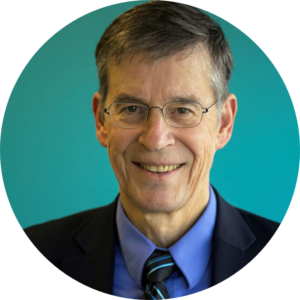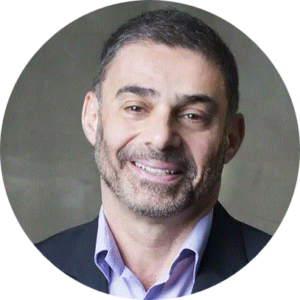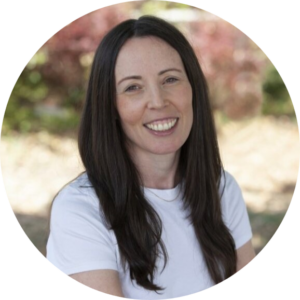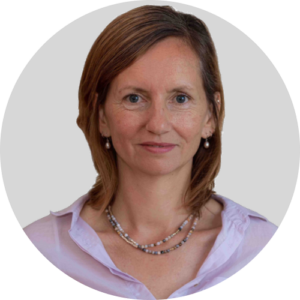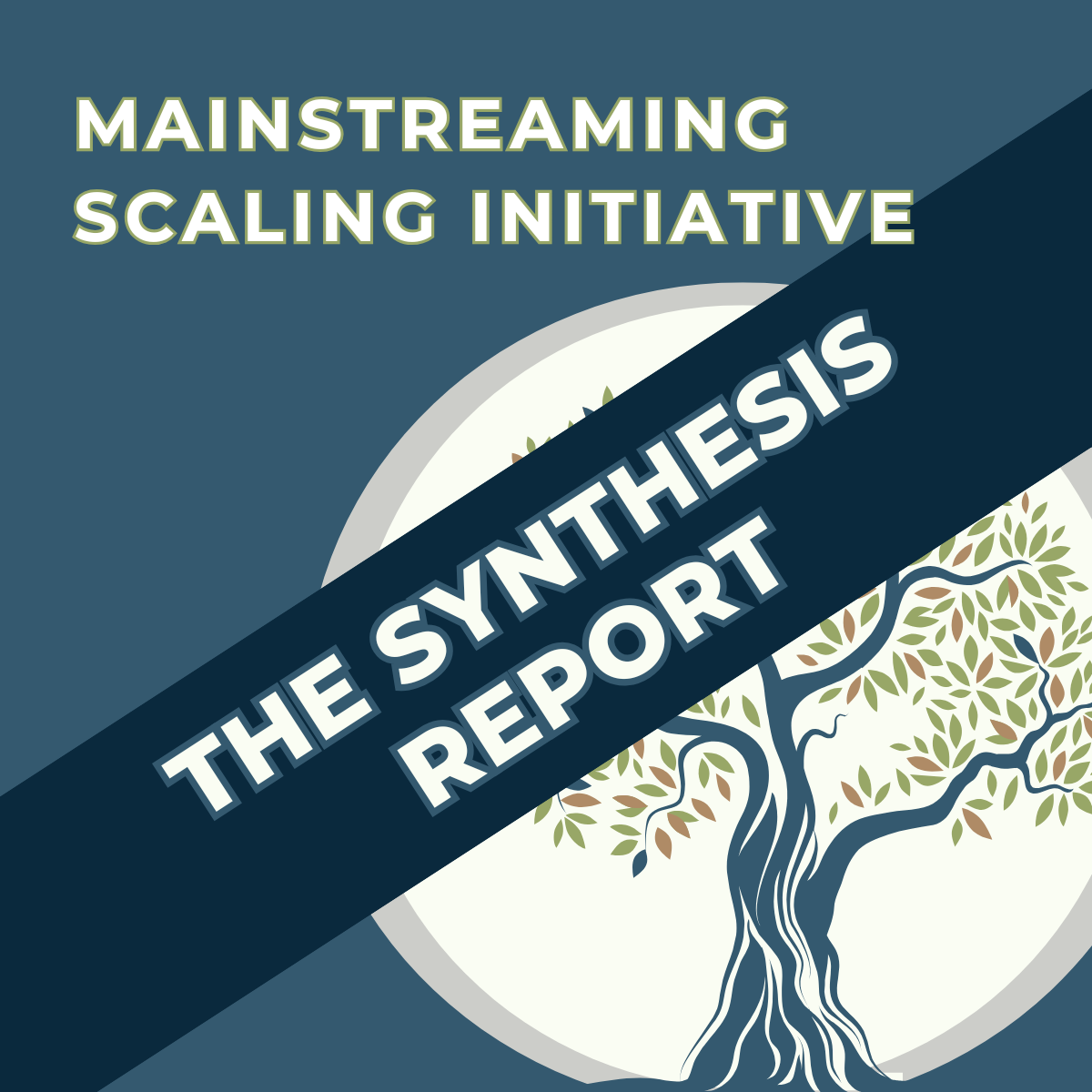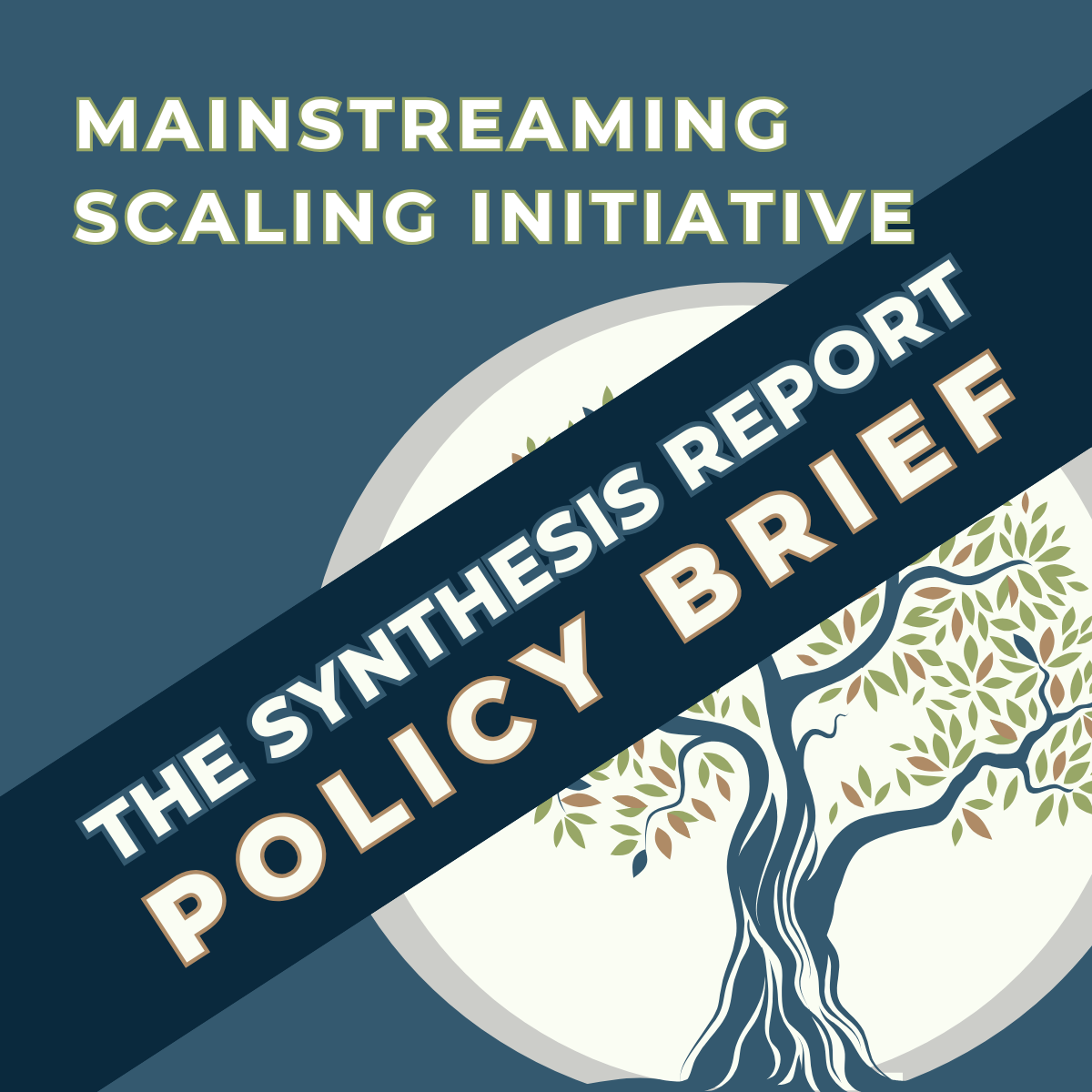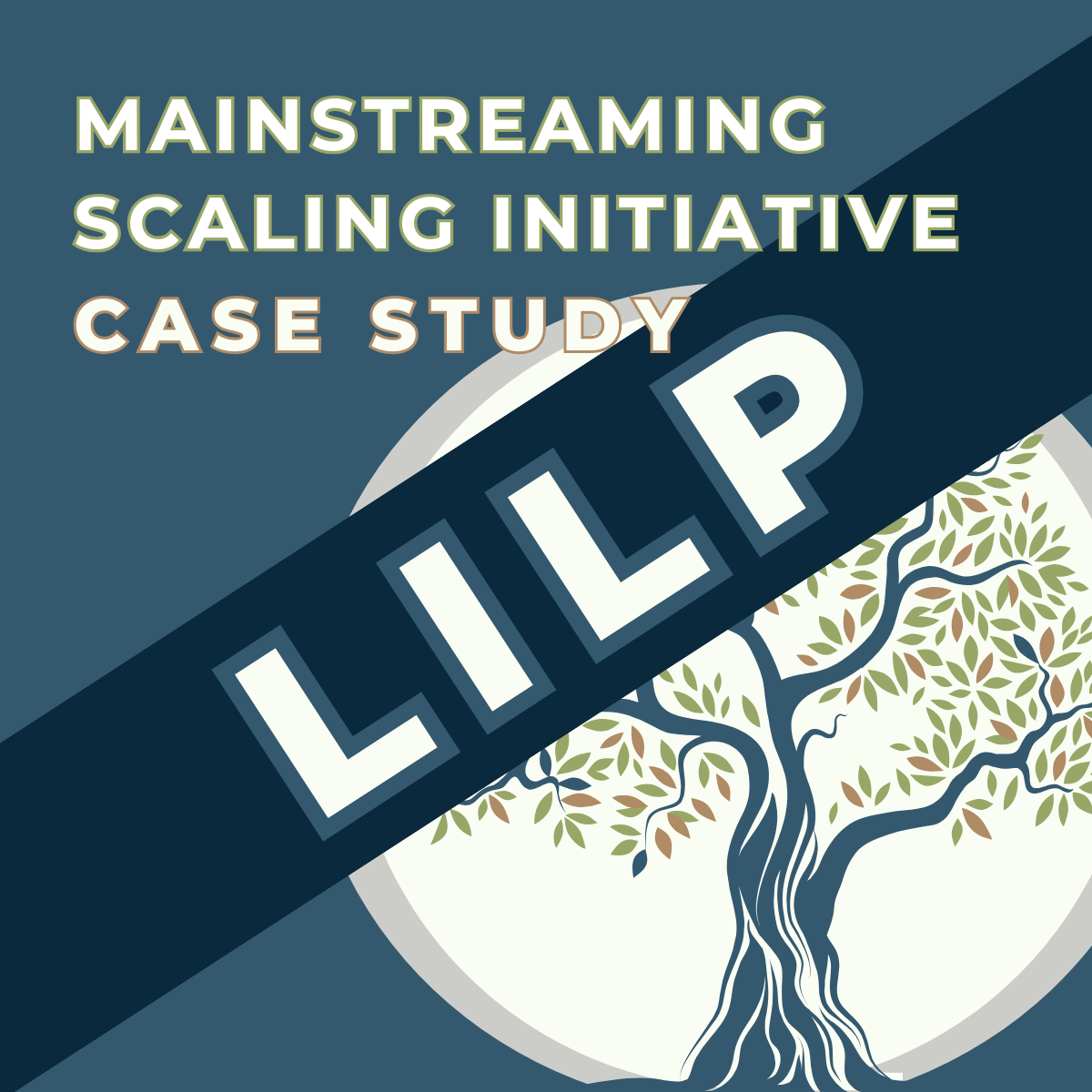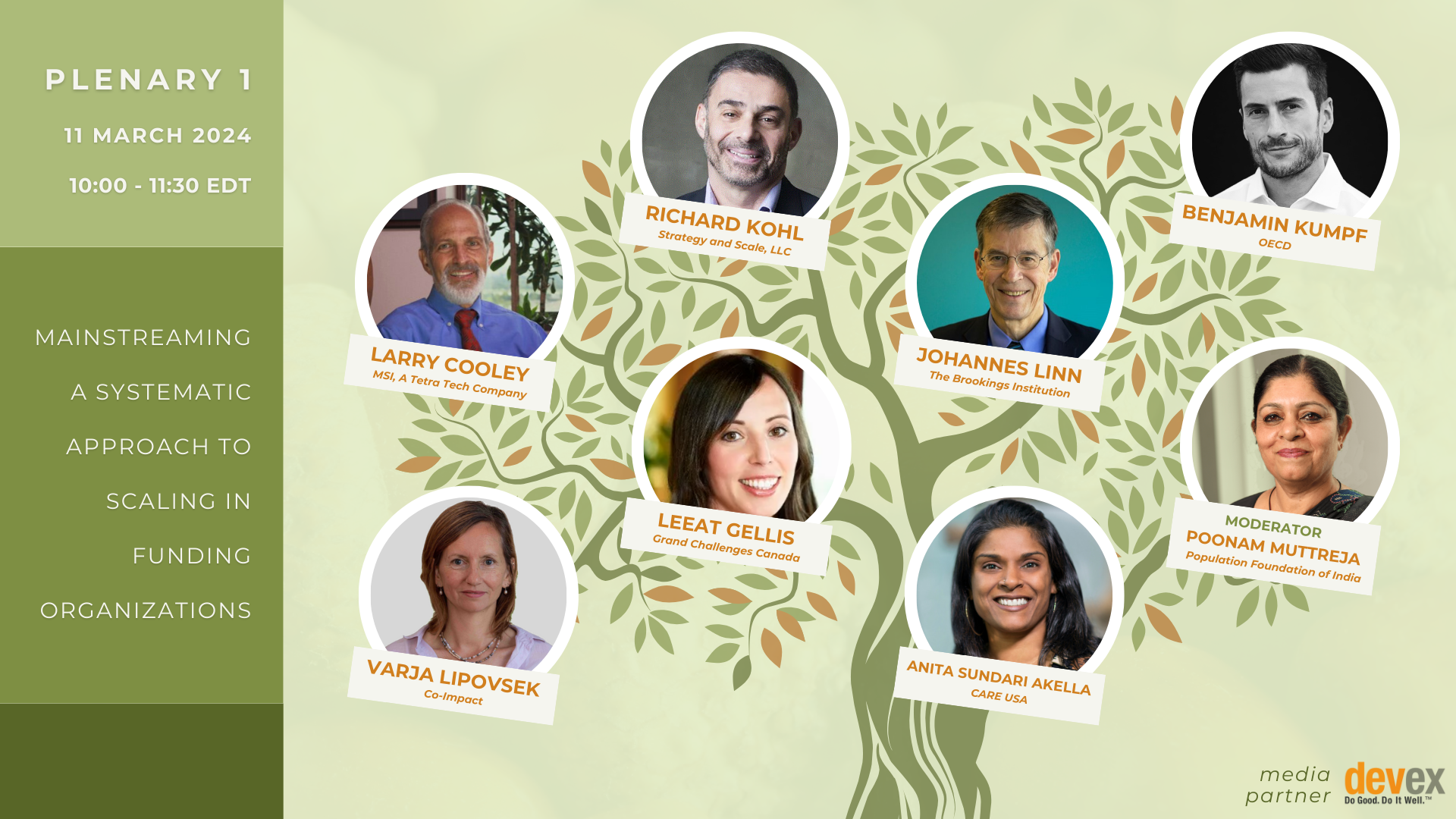
Description
Larry Cooley welcomed participants and introduced the SCoP and its 2023-2024 action-research project, the Initiative on Mainstreaming Scaling in Funder Organizations (Mainstreaming Initiative). Poonam Muttreja, moderator of the session, noted from her experience in India that external funders are often a hindrance to scaling. It is critical for funders to align with national priorities and support national capacity development to ensure sustainable impact at scale. This will require deep behavioral change in funder organizations.
Richard Kohl and Johannes Linn provided a preliminary interim synthesis of the findings and lessons from the Mainstreaming Initiative, drawing on 13 case studies of funder mainstreaming experience. They found that while there is now more focus on scaling in the funder community, funders differ in terms of the progress they have made in mainstreaming scaling into their operational practices, with smaller funders and those focused on earlier stages in the innovation-to-scale pathway finding it easier to integrate scaling into their funding practices. By contrast, large investment project funders have great difficulty in adapting their project approach to mainstream scaling. They concluded that mainstreaming is a complex change management process that requires long-term commitment with a focus on transformational scaling. It requires consistent, sustained senior leadership with integration into processes; alignment of incentives for mid-level management and staff, especially in larger organizations; and dedicated resources. Effective implementation requires planning, prioritizing, sequencing, monitoring and evaluation, and mid-course correction.
Anita Akella highlighted three important findings of the Mainstreaming Initiative: (i) funders need to support transformational scaling, not just transaction scaling; effective scaling takes many years (10-20), involves behavior change, and requires changes in incentives; (ii) funders have to face trade-offs and tensions head-on, especially the fact that complexity is the enemy of scaling; funders need to move away from the prevailing “magical thinking” that just because an intervention works in a “hot house” setting, it will also work in a “desert”; (iii) funders need to connect scaling with localization, i.e., support local initiative, priorities and capacity, rather than imposing priorities from the outside.
Varja Lipovsek echoed Anita’s points about the importance of transformational scaling and localization. Funders need to support institutionalizing scaling in governments and other local implementers; they need to support system change that aligns with a country’s priorities; they need to move from a spirit of attribution to one of contribution; their M&E practices need to reflect this shift in perspective; and they need to focus on “handing over” not just at the end of a project, but focus all along on ensuring that an intervention can and will be adopted and financed locally.
Leeat Gellis also stressed important distinctions between transformational and transactional scaling. From the experience of GCC, she noted that (i) a focus on financial sustainability is critical; (ii) hand-off must be managed better; (iii) funders need to engage in a continuing learning process; and (iii) the middle stage of the scaling pathway (“transition to scale”) is the most difficult yet critical phase to support and manage.
Ben Kumpf commented on the increasing attention from official bilateral funders to the scaling agenda, along with a greater focus on localization. He stressed that scaling and localization involve political dimensions of funder practice, which must be considered if change in funder behavior is to occur. He also noted that complexity in design of interventions may be an unavoidable reality and needs to be reflected in the scaling advice offered to funders and implementers.
|
|
|
|
|
|
|
|


